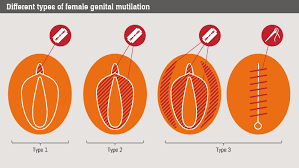
Female Genital Mutilation with Dr. Nawal Nour
July 25, 2019

Female Genital Mutilation (FGM) is a common cultural practice in parts of Africa, the Middle East and Asia. According to the World Health Organization (WHO), FGM comprises all procedures involving partial or total removal of the female external genitalia or other injury to the female genital organs for non-medical reasons. Despite it’s deep roots in many different cultures, FGM is recognized internationally as a violation of the human rights of girls and women.
This week we spoke with Dr. Nawal Nour, Director of the Global Obstetrics and Gynecology at the Brigham and Women’s Hospital and Director of the African Womens’ Health Center in Boston. In her practice, Dr. Nour sees women who come from cultures within which FGM is performed. She also grew up in an area where this was prevalent and saw firsthand, the lasting and sometimes fatal health effects associated with this practice. She has dedicated her career to the eradication of FGM. Yet, when it comes to conversations surrounding FGM, she says they lack necessary nuance.
It’s important to understand that FGM, for many, is a cultural practice and is often deemed as a rite of passage. Women she sees who have since left these cultural environments often don’t know about complications like infection, scaring, and pain, and sometimes even want the procedure to be done to them because of what their cultural identity dictates.
“People who come from different cultures and communities practice different things. And if we can, try not to be judgmental,” says Dr. Nour. “We have people who come from far away, who try to integrate into our society, and it’s not always easy to do that. And they look at some of the advocates in our society and things that we do. We do breast augmentation […] that’s foreign and bizarre to outside people. We have to be more tolerant and find ways of stopping the harmful practices in a culturally appropriate way.”
So how does she approach this issue? “We educate and make sure that we are educated. It is easy to use words we see in media like “barbaric,” but these words do little to help the women who are a part of these cultures. If anything, these words ostracize them,” she states.
As advocates, we need to be mindful of not only the practices which take place but also the cultures surrounding them. We can fight FGM (because at the end of the day, it does pose serious reproductive health risks) without demonizing or stigmatizing cultures that are different from ours.
To learn further about FGM, and how to effectively advocate against it, check out Dr. Nour’s work Female Genital Cutting, Clinical Management of Circumcised Women, published by ACOG. The report aims to educate OBGYNs on the medical management of circumcised women. And listen to our episode with her here.
